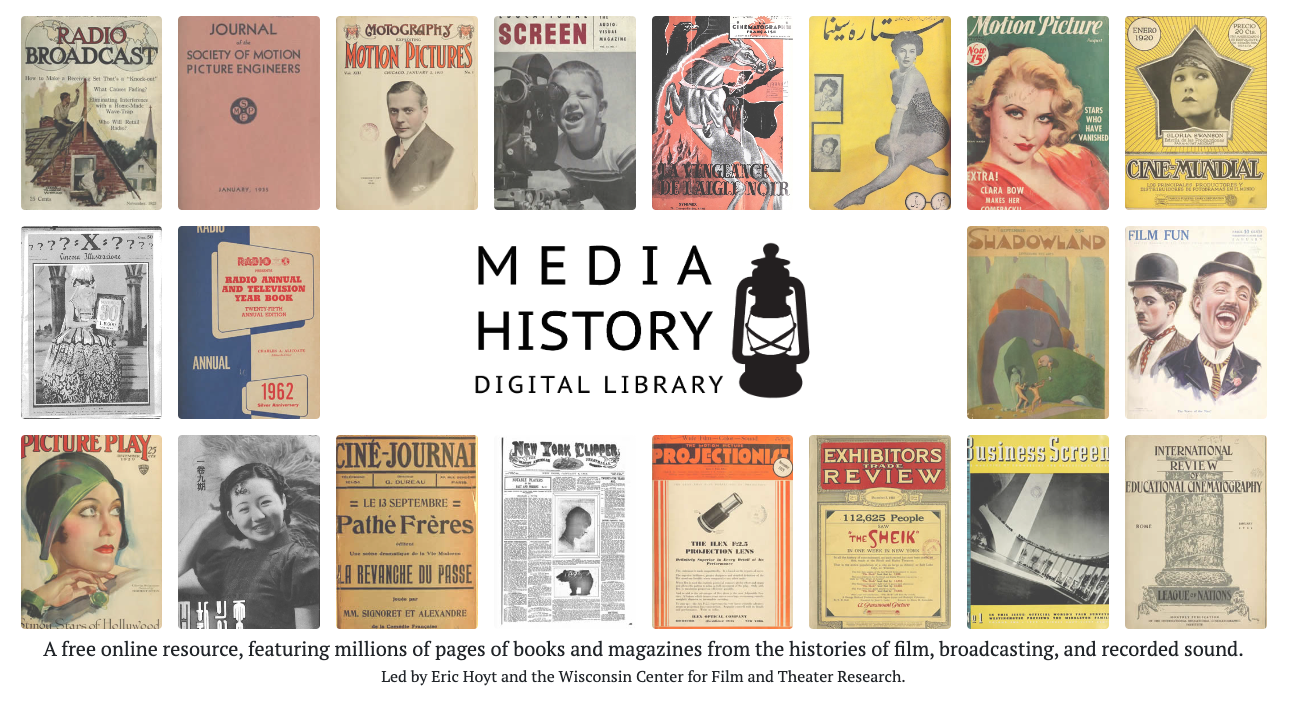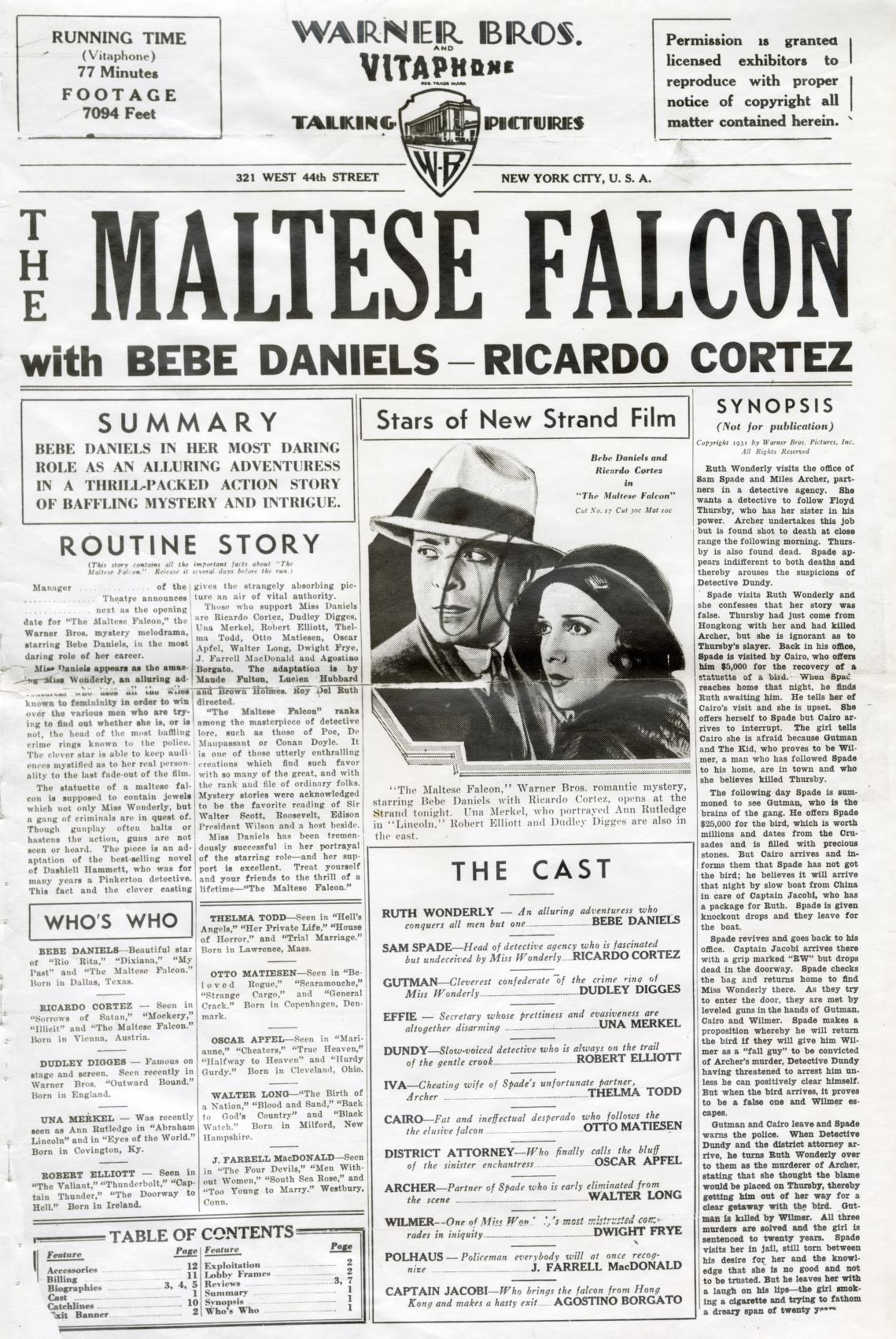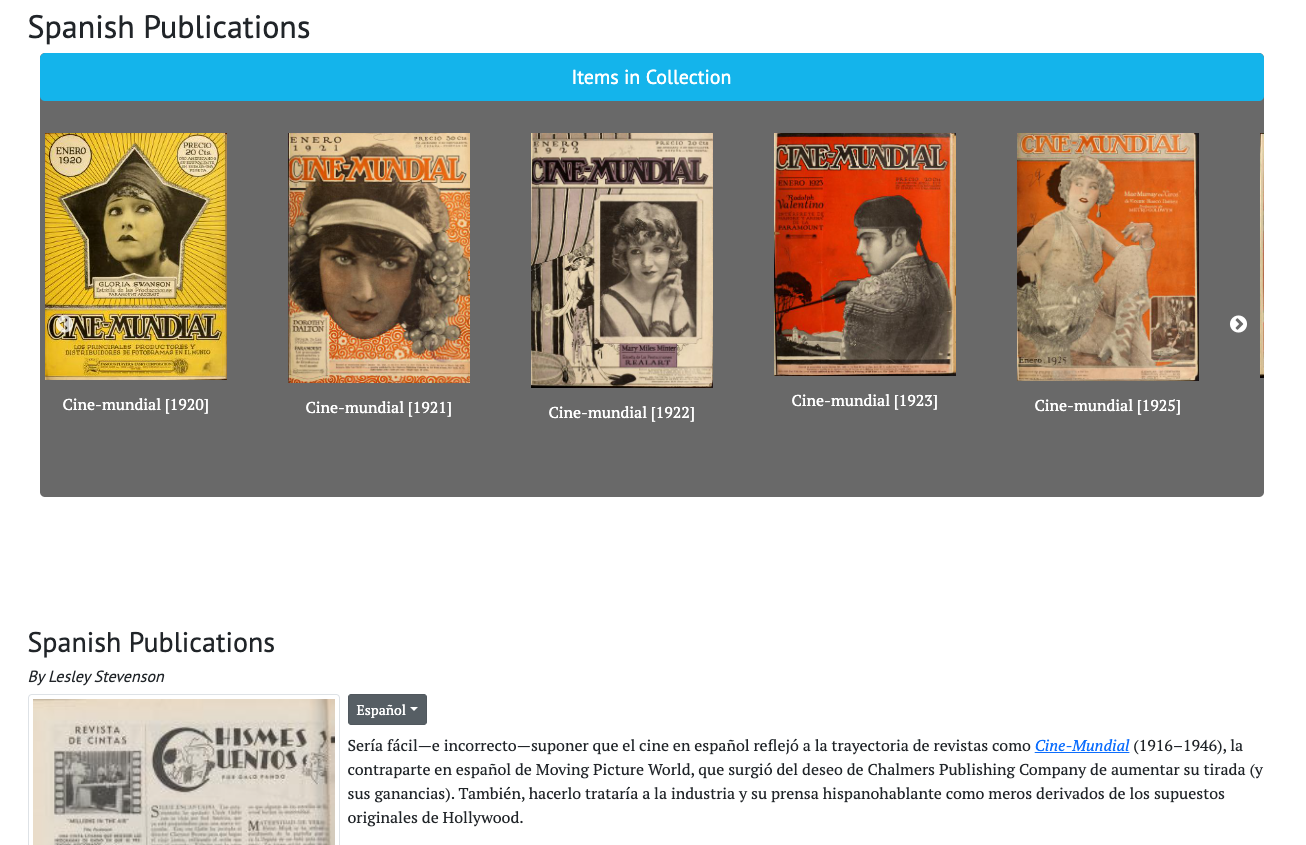
by Ben Pettis
The Media History Digital Library (MHDL) is an online resource that provides access to primary sources related to the history of film, broadcasting, and recorded sound. For over ten years, it has served as a valuable resource for researchers, scholars, and students interested in media history, by offering online access to a wealth of materials that are otherwise difficult to access. These resources are popular because users can instantly access thousands of volumes without relying on incomplete microfilm facsimiles or having to face the logistics of locating and accessing physical copies.

The MHDL includes a variety of materials, such as trade publications, technical manuals, industry reports, and archival documents, all of which provide insight into the development and evolution of media technologies, practices, and policies. The vast majority (98%) of materials in the Media History Digital Library are in the public domain and no longer protected by copyright.
Since the year 2020, the Media History Digital Library has been a part of the Wisconsin Center for Film and Theater Research (WCFTR). The WCFTR houses many materials that are available online via the MHDL—such as an extensive collection of Warner Bros. Pressbooks. The WCFTR also helps coordinate and sponsor the ongoing digitization and processing of additional publications.
For the past two years, the MHDL and WCFTR teams have been working to upgrade the online presence of the Media History Digital Library. While there have been incremental updates and band-aid fixes throughout the MHDL’s history, a dedicated modernization and redesign was long overdue. Thanks to the generous support of the University of Wisconsin-Madison and an ACLS Digital Extension Grant, new versions of the MHDL website as well as the Lantern search platform were launched in late 2022.

Lantern, the search platform for the MHDL, provides full-text search for millions of pages within the collections. In July 2022, Lantern version 2.0 made its worldwide debut (lantern.mediahist.org). This included several behind-the-scenes upgrades to servers, software, and other infrastructure to improve overall stability and performance. But these changes were not all invisible! We also gave the entire a website a fresh coat of paint and redesigned much of the interface. To just name a few features, you can now easily browse recently scanned pages, directly copy and paste OCR text, and the entire website now displays more effectively on mobile devices.

The MHDL website (mediahist.org) also received behind-the-scenes as well as public-facing updates. Just as with Lantern, mobile responsiveness was also an important priority for the new website, and all pages now display more effectively on smartphones, tablets, and other various devices. The redesigned interface makes it easier than ever to see the high-resolution image scans, read about curated subject collections, and to browse issues of a specific publication. The redesigned website has also made our own work more efficient, and the time and energy of staff and student assistants can now be less focused on manual data entry, and more on other tasks, such as processing more materials and curating collections on previously underdeveloped topics in cinema and media history, such as the recently established “Spanish Language Publications” collection.
Access is an important priority for the WCFTR and we continue to digitize, process, and upload materials whenever possible. New scans are regularly being added to the MHDL, which can be found online here and are available via Lantern’s full-text search shortly after being uploaded. Due to copyright restrictions, donor obligations, and other technical limitations, not all WCFTR holdings are able to be published online in the MHDL. Click here to read more about searching accessing all of the WCFTR’s collections.
Researchers can use the MHDL to gain a deeper understanding of the historical context in which media was created and disseminated, as well as to study the social, cultural, and economic factors that shaped media industries and influenced the content of media products. Overall, the Media History Digital Library is an essential resource for anyone interested in the history of media and its role in shaping modern society. The WCFTR is proud to be a part of this invaluable resource for of cinema and media studies, and is committed to supporting its ongoing development and growth.
Have you found anything fascinating in the MHDL collections? Has this online resource helped you in your research? Let us know by sending an email to mhdl@commarts.wisc.edu and/or wcftr@commarts.wisc.edu!
Please be sure to visit the MHDL Acknowledgements page to see the full credits for everyone who has contributed their time, energy, and expertise to make the MHDL possible.
Funding for the 2020-2022 expansion was provided by the University of Wisconsin-Madison and the ACLS Digital Extension Grant, “Globalizing and Enhancing the Media History Digital Library.” Thanks are also in order for the grant’s Co-PI, Kelley Conway, and a wide network of collaborators, including Gabriela Baeza Ventura, Carolina A. Villarroel, Kaveh Askari, Maria Belodubrovskaya, Michael Cowan, Darrell Davis, Daniela Treveri Gennari, Darshana Mini, Paul S. Moore, Debashree Mukherjee, Rielle Navitski, Nicolas Poppe, Laura Isabel Serna, Eric Smoodin, and Emilie Yeh.
